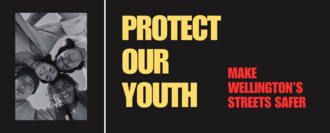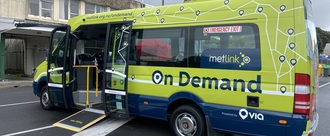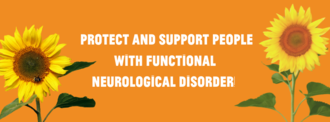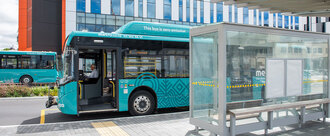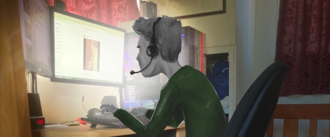-
The Government must apologise to disabled adults, children and their whānauSigned by Awhi Ngā Mātua, IHC, Disabled Persons Assembly NZ Inc, Parent to Parent, Disability Connect, Mental Health Foundation of New Zealand, NZEI Te Riu Roa, Parents of Vision Impaired PVINZ, iFUNZ, NATINA Neuroscience And Trauma Informed Network Aotearoa, ASD Dads NZ, VIPS Equity in Education, Flying Kites, Empower Learning Project, Inclusive Performance Academy, Fragile X New Zealand, NZ Disability Advisory Trust Inc, United Community Action Network (UCAN), Te Aka Tauira - Victoria University of Wellington Students’ Association, Auckland Action Against Poverty, United Community Action Network, Project Gender, ActionStation, The Angelman Network, Fairer Future Collaboration, Aotearoa Liberation League, Little Shadow, Te Kura o Hāpuku, System Change Aotearoa, NZ Disability Advisory Trust Inc., Supporting Diversity, Whakaata Tohu Tohu | Mirror Services, Justice and Peace Commission Catholic Diocese of Auckland, Standards and Monitoring Services, Chrome Collective Charitable Trust, Willow Corner, Kahu Hurihia Durie Family Trust, Barbarian Productions Ltd., Pōneke Anti-Fascist Coalition,Lead Aware NZ, Northern Monthly Meeting, the Auckland and Northland branch of the Religious Society of Friends in Aotearoa/ New Zealand (Quakers) Te Hāhi Tūhauwiri.11,714 of 15,000 SignaturesCreated by Awhi Ngā Mātua
-
Make a Fair Permanent Residency Path for Parent Visa HoldersTo make this vision a reality, we urge the Government to remove the 10-year condition for Parent Resident Visa holders and align their pathway to permanent residency with the 2-year standard used for other residency categories. This change would ensure fairness, reduce unnecessary hardships, and foster stronger family and community connections across Aotearoa. We need your support to make this change happen! Please sign and share this petition with your friends and family to help us create a fair and inclusive pathway for Parent Resident Visa holders. Together, we can build a more united and compassionate Aotearoa.1,478 of 2,000 SignaturesCreated by Pakistan and Friends Hawkes Bay Ahlulbayt Assoc.
-
Stop Nelson City Council supporting companies doing business in illegal Israeli settlements.All people should have the right to freedom, safety and self-determination. Whether we live in Nelson or Palestine, feeling at peace and safe in our homes is essential to living happy lives. To know that the gardens and orchards our families have tended over generations will still be here to nourish our children. We all deserve these rights yet right now families in Palestine live in constant threat of being targeted by the Israeli military, pushed out of their homes and persecuted for being Palestinian. Since 1967 many Palestinian homes, gardens and orchards have been bulldozed or cleared for Israeli settlers. We seek that the Nelson City Council align their procurement policy with United Nations Resolution 2334, and the obligations placed on member states by that resolution. Israel is currently in breach of many international laws. Israel is illegally occupying Palestinian territory (2, 3). UN resolution 2334 refers to the territory held by Palestine in 1967 and the illegal occupation of that territory by Israel. As an occupier state, Israel has legal obligations to protect Palestinians who live in their territory. Israel is in breach of these obligations by directly targeting and harming Palestinian civilians. UN resolution 2334 requests that Israel cease all settlement activities in the occupied territory. In support of this, Clause 5 of the resolution calls upon all states to distinguish between the territory of the state of Israel and the territories occupied since 1967 in all dealings with the region. The Resolution was put forward by and voted in favour of by the New Zealand government under the leadership of the National Party in 2016 (4). Subsequently, in February 2020 the United Nations published a database of over 100 companies it considered were doing business in the Israeli settlements. On 1 July 2023, the United Nations reviewed the list and removed 15 companies from the list due to them having halted activity in the Israeli settlements. United Nations Resolution 2334 declared that all member states should not deal with organisations doing business in the illegally occupied Palestinian Territories, this includes Aotearoa/New Zealand. We call on our local government to align its procurement policy with UN resolution 2334. References: 1. https://www.un.org/webcast/pdfs/SRES2334-2016.pdf 2. https://www.icj-cij.org/node/204176 3. https://www.ohchr.org/en/press-releases/2024/07/experts-hail-icj-declaration-illegality-israels-presence-occupied 4. https://www.mfat.govt.nz/en/media-and-resources/un-security-council-adopts-historic-resolution-on-israeli-settlements806 of 1,000 SignaturesCreated by Te Tau Ihu Palestine Solidarity
-
Protect our youth: Make Wellington’s streets safe!Aotearoa New Zealand should be a place where young people can experience life and make memories while being safe and protected. Wellington should be a city where our young people can have fun in a safe environment, without the fear of harm. Sadly, that’s not the case. A recent Salient survey revealed 75% of students have felt unsafe in a Wellington nightclub, and many highlighted concerning safety issues they'd faced travelling to and from the city at night and the lack of safe transport options. [2,3] “I can’t walk on Courtney without feeling like I need to constantly be watching my back” -Rachel (22) Young people and our communities know what the issues are and what solutions will work for us. That's why we want WCC to work with us - especially those that are often the target of harm such as our ethnic communities, queer communities, disabled communities and more. We are asking them to: • Commit to a project for young people's safety and wellbeing • Centre young people's leadership by co-creating it with us • Provide funding to enable young people's involvement and participation in the process • Funding pathways for intercultural cohesion through education and community building We truly believe that a wide-scale cross-community project would be a great first step for youth wellbeing and safety. We would start by engaging with communities on things that impact our safety - like transport, de-escalation skills, nightlife culture, safe spaces, accessibility, and cultural attitudes. In the meantime, there are already some solutions the WCC could action now, such as: • Increase funding for Take10 to include more safe spaces in and around Cuba street - Courtenay place area • Require all liquor licence holders to ensure their staff are trained in de-escalation training • Create teams of trained professionals that can go from venue to venue and make sure that people in need are cared for, including providing drug and alcohol harm reduction information and support • Train up more wardens from affected communities to be present in the inner city areas over the weekend nights, to help increase safety • Free and accessible transport • Free wi-fi and public accessible charging stations Why now? Mayor Tory Whanau has asked for a refreshed city safety plan now that the Pōneke Promise is coming to an end.[6] We want to make sure the new plan includes a project focussed on the wellbeing and safety of our young people, and reducing harm in the inner city. In late 2020, local communities raised concerns about the safety in central Wellington. At the start of 2021 the Wellington Alliance Against Sexual Violence - a coalition of youth-led organisations hosted a rally on Courtney place calling on WCC and its partners to prioritise sexual violence prevention. [3,4] WCC listened and created Pōneke Promise which widened its focus on making ‘central Wellington safe, vibrant and welcoming”[5] Now that a new plan is being made, we need to make sure WCC listens to our communities again and delivers what we as young people need - Safer streets! Join us and together we can create a better future for young people! Acknowledgment We would like to acknowledge Luke Smith. Who we lost too early and who brought us all together to fight for a better future for our young people. Because of Luke Smith we are demanding that the wellbeing and the safety of our young people are put as priority by the Wellington City Council. This petition we created in consultation with Luke Smith’s family. If you would like to support the family in bringing their son back home to South African for his funeral please click here for their givealittle. Interview with bFM: https://95bfm.com/bcast/get-action-protect-our-youth-make-wellington%E2%80%99s-streets-safe-w-rachel-jaboon-from-vasda References 1. https://www.salient.org.nz/post/safety-and-harassment-in-wellington-s-clubs 2. https://www.thepost.co.nz/nz-news/350352650/unwanted-groping-part-student-culture-city-bars 3. https://www.nzherald.co.nz/nz/there-is-no-excuse-hundreds-turn-out-to-protest-against-sexual-violence-in-wellington/7AEJB5VQY7BJ6VB67MEFU47BVU/ 4. https://wellington.govt.nz/-/media/community-support-and-resources/community-safety/files/sexual-violence-prevention/sexual-violence-prevention-roadmap.pdf 5. https://wellington.govt.nz/community-support-and-resources/safety-in-wellington/the-poneke-promise 6. https://www.thepost.co.nz/nz-news/350356298/inner-city-safety-plan-be-updated-after-students-report-feeling-unsafe729 of 800 SignaturesCreated by V.A.D.S.A
-
GWRC: Save the Tawa On Demand bus service!The Tawa On Demand bus service provides vital access to local services for those living up on our steep hills, and enables a car-free commute for those working in town. It supports families and people with limited mobility, reduces traffic and emissions, and improves social cohesion. The service has exceeded expectations, with consistent usage and 96% customer satisfaction. Without continued support from GWRC, the service will have to stop at the end of this year. We’re asking GWRC to commit to funding sustainable public transport within Tawa - whether that’s the existing Tawa On Demand service, a scheduled service, or a mixture of the two, and to asking the Government to help out.1,331 of 2,000 SignaturesCreated by Jackson Lacy
-
Implement all recommendations from the Abuse in Care Royal Commission of InquiryWe all want Aotearoa New Zealand to be a place where everyone can thrive. Certainly a place where survivors of abuse in State Care and in the Care of Faith-based Institutions can thrive. We know that what has happened to the estimated 250,000 vulnerable adults, children, and babies is a “national disgrace” according to Judge Coral Shaw, former Chair of the Abuse in Care Royal Commision of Inquiry. The Abuse in Care Royal Commission of Inquiry’s Final Report, Whanaketia: Through pain and trauma, from darkness to light, has 138 recommendations to improve the State Care system, Faith-based Institutions and other departments that have worked with some of New Zealand’s most vulnerable people [1]. The Interim Report, He Purapura Ora, he Māra Tipu from Redress to Puretumu Torowhānui, has 95 Holistic Recommendations to improve the current redress systems (Ministry of Social Development, Ministry of Health, Oranga Tamariki - Ministry for Children and Ministry of Education) for survivors of abuse in care [2]. Summary of the recommendations are: • expansion of oranga, or wellbeing, services and support services for survivors and their whānau • increased financial payments for survivors • training for those working with survivors • establishment of a listening service • development of processes for referring allegations of abuse to other agencies • better monitoring of, and reporting on, abuse and systemic issues • memorials and other projects to honour survivors and remember abuse • enactment of a right to be free from abuse in care, as well as a duty to protect this right • an exception to accident compensation legislation • changes to laws relating to civil litigation • a review of legal aid rates • a model litigant policy for the Crown • improvements to the handling of survivors’ requests for records, including as few redactions of survivors’ records as possible • a review of record-creation and record-keeping practices. The Abuse in Care Inquiry has been in progress for the past six years. This is the largest inquiry into abuse in care that Aotearoa New Zealand has ever had. These reports from the inquiry shed light on the harrowing and horrific experiences that survivors faced while in the care of the state and faith-based institutions, and emphasise the profound impact that abuse has had on survivors’ lives. Now is the time for action: for people across Aotearoa to come together and be part of the process that ensures that survivors in Aotearoa can thrive. By signing this petition, you are standing up for the rights of survivors and sending a clear message to the Crown: They have a duty of care to survivors, and a duty to implement all of the recommendations from the Abuse in Care Royal Commission of Inquiry. Together, let's ensure that survivors are supported. Join us in this crucial fight by signing the petition today and spreading the word to your friends, family, and community. Together, we can make a difference and safeguard the future of care and help survivors of abuse in State and Faith-based Care to thrive. _________ Additional information and references: In February 2018, former Prime Minister, Jacinda Ardern, and former Minister for Internal Affairs, Tracey Martin, announced that there would be a Royal Commission of Inquiry into abuse in care [3]. However, the formal work of the inquiry didn’t commence until January 2019. Since 2019, the Inquiry has conducted a number of Hearings [4]: • September to October 2020 - State Redress Hearing held • November to December 2020 - Faith-based Redress (Phase 1) Hearing held • March 2021 - Faith-based Redress (Phase 2) Hearing held • May 2021 - Children's State Residential Hearing held • June 2021 - Lake Alice Child and Adolescent Unit Hearing held • July 2021 - Tulou - Our Pacific Voices: Tatala e Pulonga (Pacific People's Experiences) Hearing held • February 2022 - Marylands school (St John of God) Hearing held • March 2022 - Tō muri the p`o Roa, tērā a Pokopoko White-te-raa (Māori Experiences) Hearing held • June 2022 - Foster Care Hearing held • July 2022 - Ūhia te Māramatanga Disability, Deaf and Mental Health Institutional Care Hearing Held • August 2022 - State Institutional Response Hearing held • October 2022 - Faith-based Institutions Response Hearing held The final report of the Inquiry was presented to the Governor General, Her Excellency The Right Honourable Dame Cindy Kiro GNZM, QSO on 25 June 2024, and released publicly following the tabling of the Final Report in the House of Representatives on 24 July 2024 [5]. 1 - https://www.abuseincare.org.nz/reports/whanaketia 2 - https://www.abuseincare.org.nz/reports/from-redress-to-puretumu/ 3 - https://www.beehive.govt.nz/release/inquiry-abuse-state-care 4 - https://www.abuseincare.org.nz/about-us/timeline/ 5 - Parliament Video | New Zealand Parliament videos.parliament.nz *Disclaimer: more information will be provided in the Updates section Image credit: Designed by artist Ruby Jones in collaboration with Karah Mackie and survivors of abuse in care4,702 of 5,000 SignaturesCreated by Ihorangi Reweti Peters

-
Transparent Talks for Effective Gun LawsThis issue is undeniably important to New Zealand, especially in the aftermath of the Christchurch mosque shootings. It is a matter which implicates the lives of many people including school children, vulnerable communities such as the Muslim community and the LGBTQ+ community, as well as those struggling with their mental health. By making it harder to access semi-automatic weapons, we are able to increase the safety of everyone. It is clear from observing other countries, especially the United States, that unrestricted access to semi-automatic weapons leads to violence and division. While it may not seem likely that slight changes to gun laws in Aotearoa could have a large effect, one must remember two key points: firstly, that the Christchurch shooter obtained his weapon completely legally; and secondly, that the state of mental health support in Aotearoa is abysmal. Without treating this second point, something which the current government seems to have no real intention of doing, allowing even slightly looser access to semi-automatics is a massive safety risk. It provides a space for a dangerous weapon to leave the hands of an ordinary person and fall into the hands of somebody with ill intentions. Even if there are only non-regular incidents of gun violence following these law changes, the fate of the dead and injured will be in the government’s hands. While the proposed changes are on the surface somewhat innocent - aiming to rectify the difficulty of some recreational gun users in carrying out their hobby - it carries a confusing sense of urgency and secrecy for a process which by all accounts should be taken as slowly, carefully, and yes, even bureaucratically as possible. Consultation should expand to include the opinions of the entirety of Aotearoa, not just select groups of individuals. I think it is naive to expect that these changes will only affect a small number of people. It would be unsurprising if this was only the beginning of a series of changes to gun laws in Aotearoa; Nicole Mckee, the Minister in charge of the reform, is a former gun lobbyist who may be interested in emulating the gun culture in the United States. About me I am a year 13 student from Kapiti College who is concerned about gun safety in Aotearoa. I believe in maintaining a peaceful and safe society for everyone, regardless of their background or beliefs. As a young person in Aotearoa, I want to feel confident that the government is making decisions that prioritise the safety and well-being of all communities, rather than catering to a few special interest groups. Any changes to our gun laws must be done with full transparency and public consultation. I believe that by opening up the conversation, we can come to a solution that balances the needs of recreational gun users with the safety concerns of the wider population. I urge Minister Nicole Mckee and the coalition government to release the consultation document and ensure that any changes to our gun laws are made with the input of the public, the police, and those most affected by gun violence. Together, we can build a safer Aotearoa.177 of 200 SignaturesCreated by Amaya Colombick
-
Demand Accountability for Disinformation in Public DiscoursePeters’ recent comments misrepresented the facts surrounding athletes Imane Khelif and Lin Yu-ting and the broader debate on gender and sports. His assertions, based on misleading information and lacking in scientific and factual accuracy, highlight a dangerous trend of disinformation that threatens the integrity of public discourse and undermines trust in democratic institutions. Disinformation is a deliberate attempt to mislead and manipulate public opinion, often with harmful consequences. It obscures the truth, incites fear, and distracts from meaningful, evidence-based discussions. When such disinformation is propagated by elected officials, it not only betrays the principles of honesty and transparency but also erodes the foundational values of democracy. We urge Parliament to: 1. Strengthen Regulations and Oversight: Develop and implement stronger regulations to address the spread of disinformation by public officials. This includes establishing clear guidelines against misinformation and disinformation in the Cabinet Manual and codes of conduct for elected representatives to enhance accountability and integrity in public discourse. 2. Promote Transparency and Truth: Support initiatives that enhance transparency and truthfulness in public statements and media coverage. Encourage public figures to adhere to high standards of factual accuracy and integrity. 3. Foster Public Awareness and Education: Invest in educational programs that help citizens critically evaluate information and recognize disinformation. This includes supporting media literacy programs that equip the public with the skills to discern credible information from falsehoods. 4. Encourage Responsible Communication: Advocate for a culture of responsible communication among public officials and political leaders. Promote ethical standards that prioritize the well-being of citizens over political gain. By addressing the issue of disinformation head-on, Parliament can help restore public trust, uphold democratic values, and ensure that public discourse is grounded in truth and respect. We urge you to take immediate action to combat the spread of misleading information and protect the integrity of our democratic processes. Further Reading: Peters delivers self-uppercut with cynical boxing claims5,187 of 6,000 SignaturesCreated by Samantha Green & Louisa Wall
-
Protect and support people with Functional Neurological Disorder!Functional Neurological Disorder is becoming a fast growing condition in New Zealand. While no one person is born with it, many have come to be diagnosed with FND with growing global awareness of this condition, its poor reaction to mrna vaccines, the lack of helpful and preventative treatment and breach of the code of patient rights. FND is a disabling and devastating condition. Symptoms range from a faint, to seizures, paralysis, pain, immobility to say a few, and that comes with a lot of psychological damage to one's self esteem. There are many cases of delayed or mistreatment from lack of understanding, including being locked away from family homes, being accused of being crazy, being told we deserve it, not being treated, gaslit, and difficult to get help, or having to wait years for proper assessment. For 37 years I believed I was epileptic and had fibromyalgia. FND was not widely considered at all then. This meant decades of mismanagement, mis-medication, career paths denied, and absolutely no treatment for the real condition. Because of those consequences, I have been - avoided in the street - as I was weaving from medication, yelled at by doctors because they did not know what was going on, accused of not taking my medicines, which I have always taken religiously. I have been subject to abusive situations because of the effects of the medications I did not need. Personally, I have been waiting for nearly 3 years to have the acknowledgement that I even require treatment, and the only reason it has happened THAT QUICKLY is because of the consistent follow up and bringing things to ACC attention. It is exhausting, stress inducing, and causes further harm to FND clients. While I have been compliant and have undertaken every possible process, I am still here, waiting for treatment, 3 years after diagnosis, 43 years after it started. As such, I call on the Ministry of Health, the Ministry of Disabled People, Ministry of Social Development and ACC to take these three actions. 1. They must adhere to the Code of Health and Disability Services Consumers' Rights in every manner regarding FND patient's, diagnosis, treatment and handling by all related staff, including management of patient records and expunged files or diagnosis, and supervision of medical applications used by practices for mismanagement and breach of patient privacy by mis-sharing patient information. 2. They must collaboratively discuss and compile treatment plans and support services for patients in a timely manner so as to prevent further chronic harm. 3. Inclusion of FND in its language and education policies, inclusive of medical staff, acc staff, social workers, and educators of medicine, to better facilitate healthy discussion and further beneficial research around this condition. There is no cure for FND, and while things continue to get worse at an alarming rate, the care in New Zealand is not keeping up. If the Ministry of Health, Ministry for Disabilities and ACC collaboratively create an early treatment plan it could help prevent FND from becoming chronically worse and in some cases, may even reduce symptoms for a short period of time. I want to see the Government put its people first. We deserve a good quality of life, with dignity and mana and with whanau around to support us. Not be treated like a burden and excluded from jobs, community and even medical care. I want to see our future moko be treated with respect and dignity when going into the medical system. These three steps can lead us towards a positive sustainable change within the health care system that will benefit all people living with FND. Join us by making the health care system more just for everyone! Sign this petition and share it with friends and family. Further reading: https://www.ninds.nih.gov/health-information/disorders/functional-neurologic-disorder. www.fndaware.nz bFM Interview https://95bfm.com/bcast/get-action-protect-and-support-people-with-functional-neurological-disorder-w-keremia-tairua-9th170 of 200 SignaturesCreated by FND AWARE
-
Remove GST on Menstrual Products in New ZealandMenstrual products in NZ are classified as luxury items so they are subject to Goods and Services Tax (GST). However, these products are not luxuries, to half the population (women), these are necessities. GST on menstrual products adds unnecessary financial strain to those who need them, particularly those from lower income households. According to ActionAid, 1 in 3 women and girls in New Zealand between the ages of 15 and 65 have difficulty accessing menstrual products due to their high cost (ActionAid, 2020). By removing the GST on menstrual products, we can help to alleviate period poverty and increase accessibility to these necessary items. Let's make period products more accessible to everyone in New Zealand by urging our government to lift the GST on these crucial products. Please sign this petition to show your support for this cause.220 of 300 SignaturesCreated by Mia Ding
-
Fund public transport in Greater ChristchurchWell-funded public transport systems create healthy, connected cities which are better for the public and for the climate. Improving the frequency, reach and quality of public transport services in Greater Christchurch will ultimately benefit the whole community. Greater Christchurch is growing rapidly - a 10% population growth from 2018 to 2023, far higher than the national average of 6%, and much of that growth located in the Selwyn (29% increase) and Waimakariri (11% increase) regions [2]. More planning is required to ensure that Greater Christchurch remains a liveable, accessible city. A city of Christchurch’s size requires a good public transport system, one that gives residents an alternative to car dependency. Car usage is becoming increasingly expensive, especially as Greater Christchurch continues to sprawl, locking in longer journeys. Public transport usage in Christchurch is increasing, with almost one-third of Christchurch residents having used it at least once in 2023, and 14.3 million trips a year [3], but requires investment to become accessible for all residents. Christchurch residents have made this clear in their submissions on ECan’s Long-Term Plan - 64% of submitters want improved public transport. We envision a city where residents can access safe and sheltered bus stops close to their homes, and be able to get where they want to go with convenience. A city where our streets and roads are not congested with traffic, and safe and enjoyable places to get around, whether on foot, cycling, in a car, or by bus. As transport makes up over 50% of Christchurch’s greenhouse gas emissions [4], and contributes to our air pollution problem, which kills 800 people a year in Christchurch alone [5], moving more people onto public and active transport is good for our health and good for the planet. As outlined above, there is a plan, which has already been agreed to by the various councils and NZTA - the PT Futures plan. However, to implement the plan, Central Government funding is required [6]. The Government have pulled back on an earlier commitment of 78 million in funding towards the project. Despite $2.7 billion in funding for transport announced in the budget in May, there were no funds earmarked for public transport in Christchurch [7]. Given the importance of investment in public transport in Greater Christchurch, there is still time for additional funds to be found. Unlike the proposed rural highway projects, funding public transport will dramatically speed up getting to places within the city. Public transport in Christchurch has long been neglected. Oliver Lewis of BusinessDesk wrote a great article titled “Christchurch misses out in transport funding lottery” [8], which highlights the disparity of funding for transport that Christchurch receives compared to Auckland and Wellington, and is worthwhile reading. We ask Simeon Brown to invest in Greater Christchurch and support the PT Futures plan, which will turbo-charge public transport in Ōtautahi. References: [1] https://www.ecan.govt.nz/your-region/living-here/transport/public-transport-services/transforming-public-transport [2] https://www.thepress.co.nz/nz-news/350294139/christchurch-getting-older-more-diverse-and-much-much-bigger [3] https://ccc.govt.nz/the-council/how-the-council-works/reporting-and-monitoring/life-in-christchurch/transport [4] https://newsline.ccc.govt.nz/news/story/latest-greenhouse-gas-emissions-report-released-for-christchurch [5] https://www.rnz.co.nz/news/national/470488/air-pollution-invercargill-revealed-as-deadliest-centre-study [6] https://businessdesk.co.nz/article/infrastructure/short-sighted-christchurch-bus-funding-doesnt-exist-council-says [7] https://budget.govt.nz/budget/pdfs/releases/l12a-factsheet-transport.pdf [8] https://businessdesk.co.nz/article/transport/christchurch-misses-out-in-transport-funding-lottery607 of 800 SignaturesCreated by Greater Ōtautahi

-
Establish a dedicated trafficking and exploitation helplinehttps://www.youtube.com/watch?v=6x-haSgcj-Q There are currently an overwhelming number of helplines for migrant exploitation, labour exploitation, sexual violence and child abuse, which are operated by both government and non-government organisations. With so many options, exploitation victim-survivors often feel confused about where to get the best information on their situation, before even considering formal reporting through the police or other agencies. Exploitation is a unique form of abuse as it involves some form of commodification of people (including online or through technology-assisted methods), and requires a specialised emergency response and approach to victim-survivor recovery initiatives. The Slave Check Foundation's research [1], involving 12 adult survivors from New Zealand and Australia, revealed alarming gaps in recognition and response when victims sought help. The overwhelming response from all the survivors who took part in the research was that they wanted a helpline and that the existing helplines are confusing for them. A staggering 60 percent of surveyed survivors reported that initial attempts to seek assistance from organisations such as the police, medical agencies, or helplines did not result in recognition of their situation being exploitative. As stated in the 2022 Trafficking in Persons report produced by the US State Department, "the Government of New Zealand does not fully meet the minimum standards for the elimination of trafficking" and does not yet have a national referral mechanism in place which includes a dedicated helpline [2]. Overall, victims of exploitation and trafficking face numerous barriers to reporting and/or receiving support, including a lack of awareness and tailored, trauma-informed support. Implementing a new helpline monitored by highly trained people who can deliver streamlined, trauma-informed support and information will lead to: a) increased reporting of exploitation, b) safeguarding individuals who are in, or vulnerable to exploitative situations, c) more accurate and representative data of the scale of the issue and information for intervention and prevention targets and strategies. Given the mistrust and anxiety associated with reporting via government channels, this helpline should connect to official channels where required and appropriate help services, but be administered by a non-government organisation. An increase in reporting will also create more vulnerability for victim-survivors if wrap-around services are not available, so this needs to be a key priority in the development of a dedicated helpline and referral system. The helpline should be adapted to suit a range of accessibility and language needs, offer multiple access points, including phone, web, chatbot, and text. A dedicated and centralised helpline system would remove the barriers and allow for easier help seeking for victims of trafficking and exploitation, aligning Aotearoa New Zealand with international best practice for addressing exploitation and trafficking. Will you join us in calling for an Aotearoa New Zealand where everyone is valued and cared for by their communities? ------------------------------------------------ For further information: https://www.ecpat.org.nz/act-now/ References [1] https://www.slavecheck.org/helpline-recommendations [2]https://www.state.gov/wp-content/uploads/2022/10/20221020-2022-TIP-Report.pdf1,988 of 2,000 SignaturesCreated by ECPAT New Zealand Child Alert

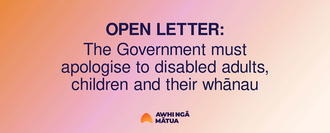
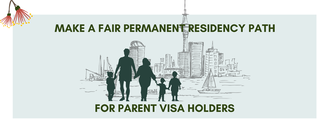
-min_formphotoeditor.com.jpg)
